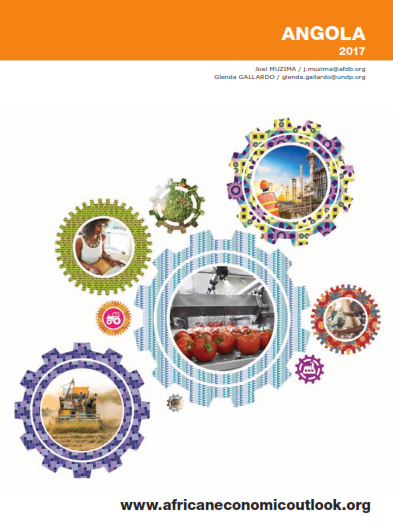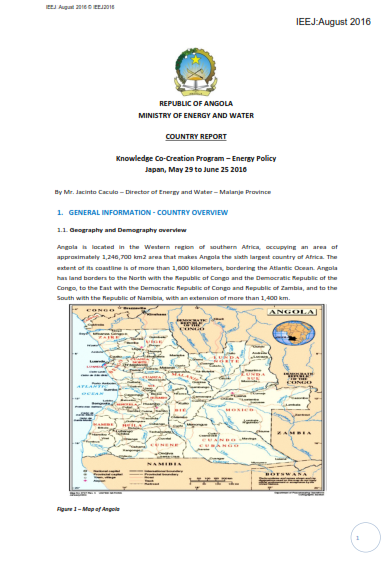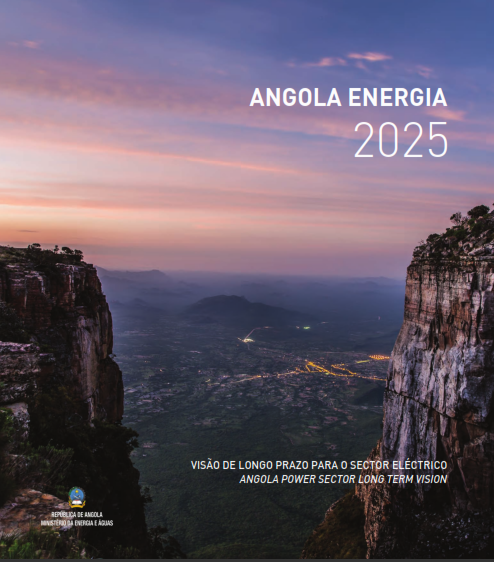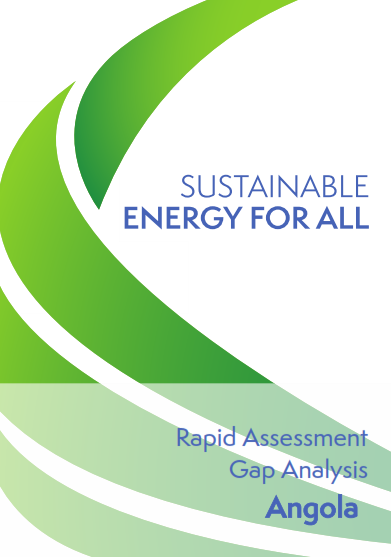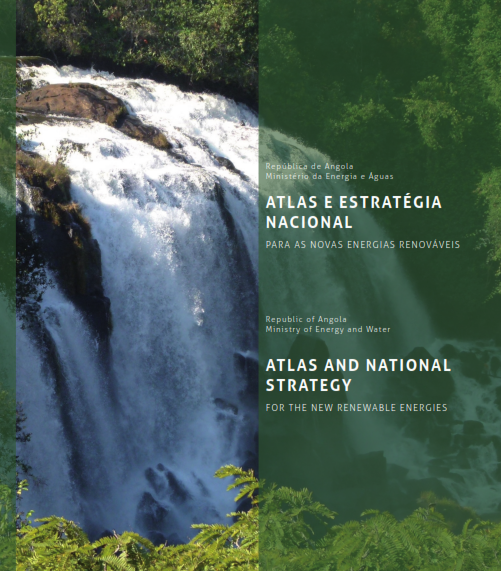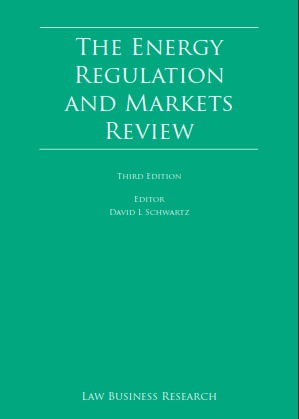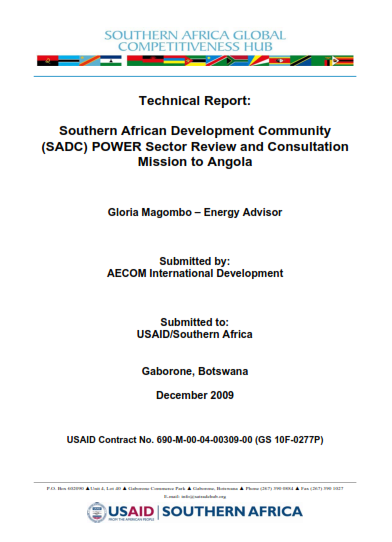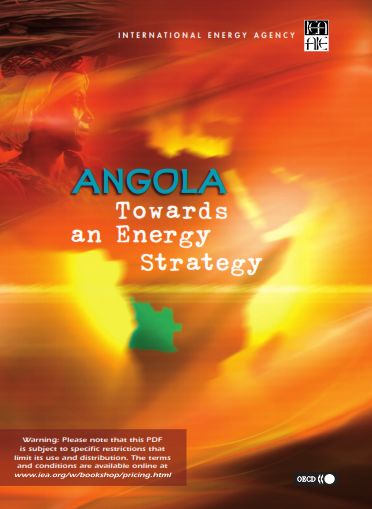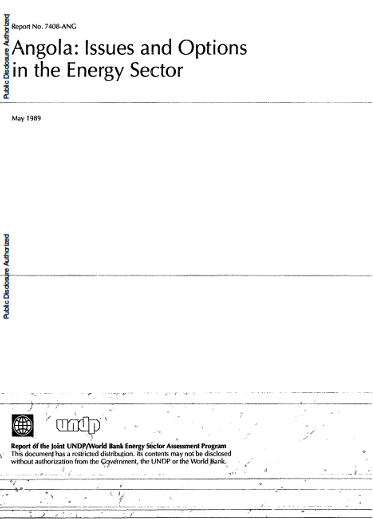We post here the relevant reports for the power sector in Angola. Feel free to join our efforts and share us any other you may have found. We'd be glad to add them to the list. Just send an email to This email address is being protected from spambots. You need JavaScript enabled to view it.
Publication date: 2017
Author: AfDB / OECD - UNDP
Description: The government has taken steps to mitigate the impact of the oil price shock on the economy, and these included: the rationalisation of public expenditure through the elimination of fuel subsidies, significant increase in mobilising non-oil revenues, and allowing the exchange rate to depreciate to preserve export competitiveness and reduce the imports trend of the country.
Download Report >>
Publication date: 2016, August
Author: MINEA
Description: Angola is one of the fastest growing economies in sub-saharan Africa. Its economy is largely dependent on the oil sector, of which Angola is the second largest producer of the continent after Nigeria. In recent years, however, Angola’s economy has experienced a significant diversification, with the growth of the non-oil sector being superior thant that of the oil sector, driven mainly by agriculture, energy, manufacturing, construction and service sectors. Nevertheless, Angola’s economy still remains largely dependent on oil, which accounts for an estimated 95% of exports, 70% of government revenue and 46% of GDP.
Download Report >>
Publication date: 2016, June
Author: MINEA
Description: The global objectives of the long-term strategy Angola 2025, for promoting human development and the well-being of Angolan citizens, promoting a fair and sustainable development, ensuring a high rhythm of economic development and a fair and well balanced development of the national territory, can only be achieved by means of an adequate response by the electricity sector.
Download Report >>
Publication date: 2015, September
Author: MINEA / SE4ALL / UNDP
Description: In recognition of the critical need to improve global access to sustainable, affordable and environmentally sound energy services and resources, the United Nations General Assembly declared 2012 the International Year of Sustainable Energy for All and urged Member States and the UN system to increase the awareness of the importance of addressing energy issues and to promote action at the local, national, regional and international levels. In response, the UN Secretary General launched a global Initiative to achieve Sustainable Energy for All by the year 2030.
Download Report >>
Publication date: 2015, April
Author: MINEA
Description: Renewable energies, in particular, hydro, have contributed decisively to bring power to more and more Angolans. Hydropower accounts for over 70% of electricity production in the country and, with the ongoing construction of Laúca and Cambambe II, will continue to represent the majority of grid connected generation in the country. Angola is already today one of the world’s countries with greater incorporation of renewables.
Download Report >>
Publication date: 2014, June
Author: Law Business Research
Description: Angola’s energy sector is characterised by strong public activity, with state companies acting throughout the value chain of the oil, natural gas and electricity industries. Despite the prominent public presence in the energy industry, the country is progressively widening entry to private players, creating the necessary mechanisms to allow private companies to take part in the industry’s activities alongside and in close cooperation with the respective public companies.
Download Report >>
Publication date: 2009, December
Author: USAID
Description: The objective of the mission was to asses the extent of and future plans for the power sector infrastructure development in Angola, particularly the generation and transmission infrastructure, looking at the extent to which the installed capacity meets the demand, the existing internal national grid and the possibilities to extend the grid into neighbouring SADC Member States. On the basis of the findings, to then come up with proposals for immediate, short term, medium term and probably long term measures to accelerate the connection of national electricity grid of Angola to the rest of the Southern African Power Pool (SAPP) Grid.
Download Report >>
Publication date: 2006
Author: OECD / IEA
Description: Angola: Towards an Energy Strategy is the result of the team’s work: an independent review of the major energy policy issues facing the country. While Angola faces many energy challenges, there are lessons in this analysis that are applicable in many other developing countries.
This inclusive review on Angola focuses on areas for priority action and hones in on energy sub-sectors likely to play the largest role in meeting domestic demand for modern energy services: notably electricity and oil products. As biomass currently plays an immense role in meeting the bulk of the energy needs of Angolan households, this sub-sector is also featured, with emphasis on improving the sustainability of this renewable energy source.
Download Report >>
Publication date: 1989, May
Author: World Bank / UNDP
Description: The proposals made in this report are designed to increase the efficiency of the energy sector, through a number of moderate investments in infrastructure, but also through changes in pricing policy, and overall improvements in sector management. The mission recommends that the focus for the electric power subsector should be on maintaining and upgrading the existing electric power infrastructure and improving the reliability of supply.
Download Report >>





